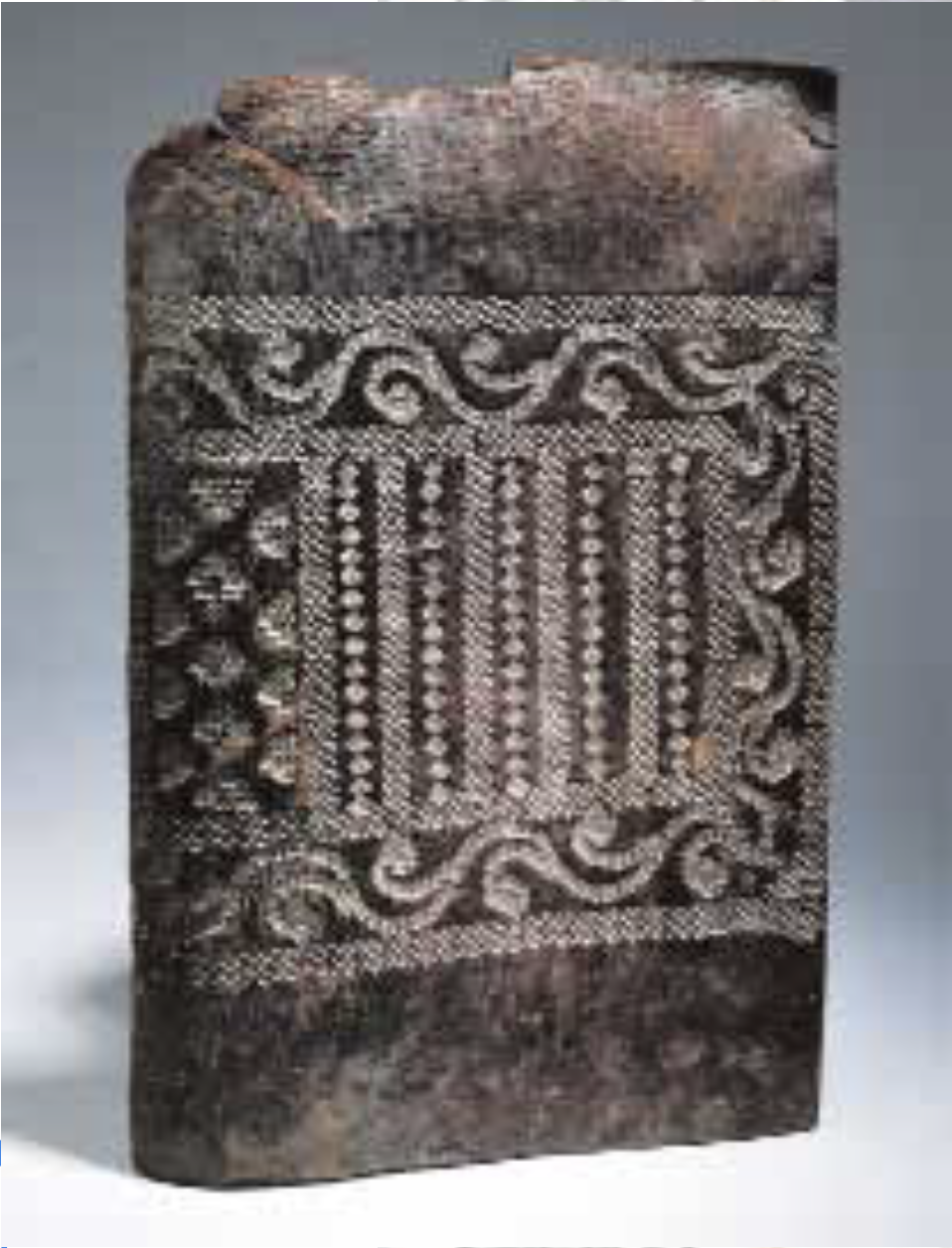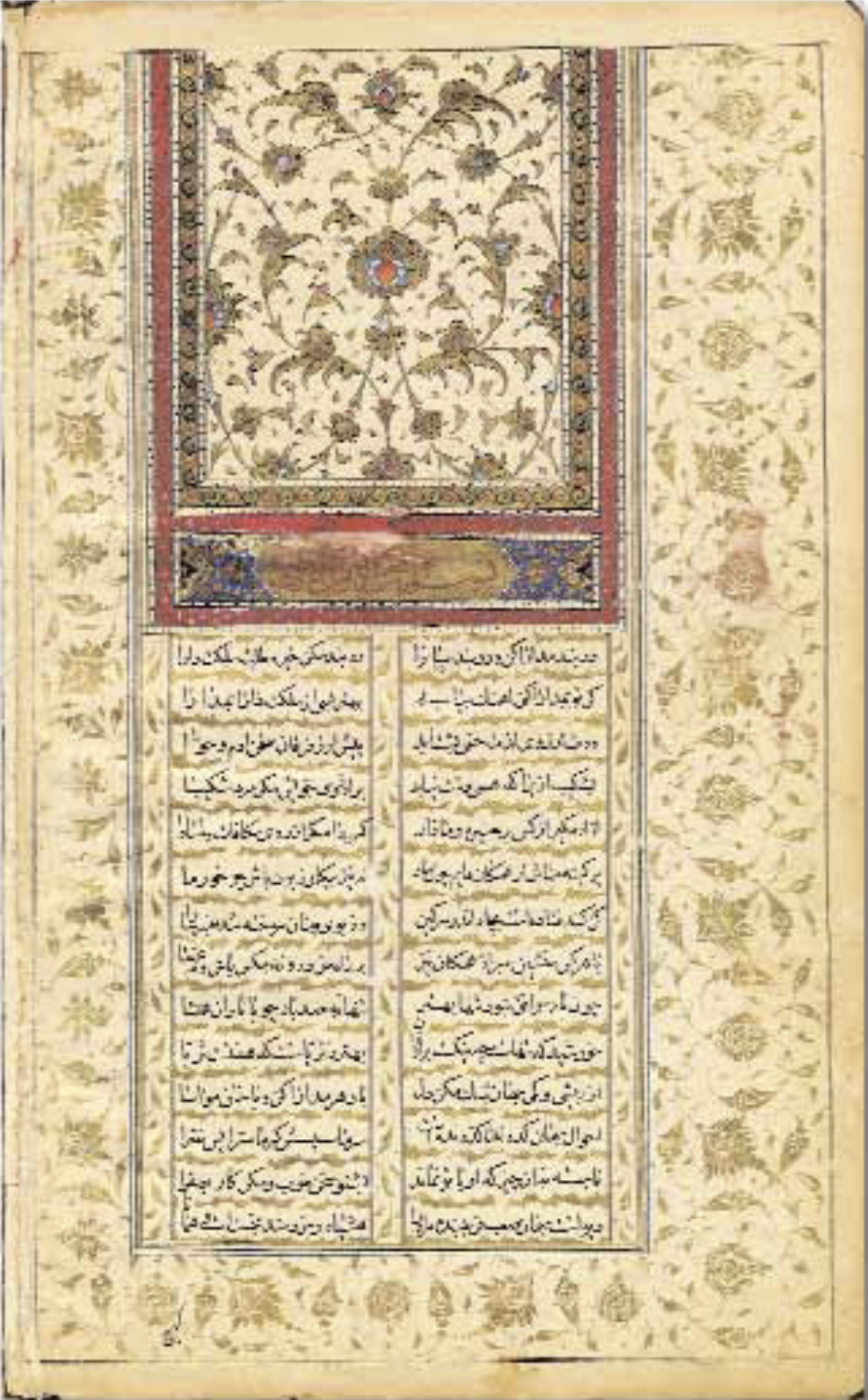Nuqta Series | Adab e Ikhtilaf | Session 2
Video:
https://www.youtube.com/watch?v=bqWLwMvrSPE
In this session, Alwaez Ali Akbar Qazi tells us about how we may learn to disagree with others and articulate our own understanding in a way that creates an opportunity for critical dialogue.
ITREB Activities
INSPIRE Book Review - THE HAPPINESS HYPOTHESIS
Video:
https://www.youtube.com/watch?v=nw6fMj-DLAM
Al-Hikmah
In his widely praised book, award-winning psychologist Jonathan Haidt examines the world’s philosophical wisdom through the lens of psychological science, showing how a deeper understanding of enduring maxims-like: "Do unto others as you would have others do unto you, or What doesn’t kill you makes you stronger" -can enrich and even transform our lives.
Reviewer: Aziz Kabani
Host: Asmita Ali
Video:
https://www.youtube.com/watch?v=nw6fMj-DLAM
Al-Hikmah
In his widely praised book, award-winning psychologist Jonathan Haidt examines the world’s philosophical wisdom through the lens of psychological science, showing how a deeper understanding of enduring maxims-like: "Do unto others as you would have others do unto you, or What doesn’t kill you makes you stronger" -can enrich and even transform our lives.
Reviewer: Aziz Kabani
Host: Asmita Ali
INSPIRE Book Review - The Power of Now: A Guide to Spiritual Enlightenment
Video:
https://www.youtube.com/watch?v=RZl24JuFyoY
The author, Eckhart Tolle's message is simple: living in the now is the truest path to happiness and enlightenment. And while this message may not seem stunningly original or fresh, Tolle's clear writing, supportive voice and enthusiasm make this an excellent manual for anyone who's ever wondered what exactly "living in the now" means. Power of now hence provides a true guide for spiritual enlightenment.
Reviewer: Jawaid Amirali
Video:
https://www.youtube.com/watch?v=RZl24JuFyoY
The author, Eckhart Tolle's message is simple: living in the now is the truest path to happiness and enlightenment. And while this message may not seem stunningly original or fresh, Tolle's clear writing, supportive voice and enthusiasm make this an excellent manual for anyone who's ever wondered what exactly "living in the now" means. Power of now hence provides a true guide for spiritual enlightenment.
Reviewer: Jawaid Amirali
Attitudes Matter! Exploring Values in Fatimid Times
Video:
https://www.youtube.com/watch?v=X_NfTTJSF3s
ITREB India presents a session with Dr. Shainool Jiwa 7th Feb 2021
Video:
https://www.youtube.com/watch?v=X_NfTTJSF3s
ITREB India presents a session with Dr. Shainool Jiwa 7th Feb 2021
INSPIRE Book Review - Sacred Seed
Video:
https://www.youtube.com/watch?v=auT42PRdAAE
Inspired by physicist and environmental leader Dr. Vandana Shiva, this collection of essays draw on the wisdom of ancient and modern traditions to remind readers of the profound sacredness of the seed--how in its purity, it is the source and renewal of all of life.
Video:
https://www.youtube.com/watch?v=auT42PRdAAE
Inspired by physicist and environmental leader Dr. Vandana Shiva, this collection of essays draw on the wisdom of ancient and modern traditions to remind readers of the profound sacredness of the seed--how in its purity, it is the source and renewal of all of life.
Nuqta Series | Desire, Dream and Happiness | Session 4
Video:
https://www.youtube.com/watch?v=NoMexwNqtjI
Video:
https://www.youtube.com/watch?v=NoMexwNqtjI
Step Taster Sessions

ITREB Portugal introduces “Taster Sessions” for parents and students, in order to get glimpse of the secondary curriculum developed by the Institute of Ismaili Studies (IIS).
Portuguese
“If we teach today’s students as we taught yesterday’s, we rob them of tomorrow”.
John Dewey
The Generation Z (millennials) is the most diverse, resilient, connected and informed generation ever, with their own set of challenges and opportunities. This requires the educators to adopt creative approaches in the classroom, which enable them to become critical thinkers. The Institute of Ismaili Studies (IIS) offers STEP programme to exceptional graduates and works with them to develop their skills and shape them into educators and mentors who can teach and inspire the youth of our Jamat. The secondary religious education classes are taught by professionally trained teachers who have undergone rigorous training for two years at the Institute of Ismaili Studies (IIS) and University College London (UCL).
The “Taster Sessions” will be facilitated by STEP teachers. The secondary classroom offers multiple learning opportunities so that the youth of our Jamat feels that it belongs to the wider community and is comfortable in their own identity. This is a unique opportunity for you to experience the learning environment of the secondary religious education (RE) classroom.
The secondary curriculum endorses a teaching profile that views teachers as educators rather than technical specialists. The STEP teachers use various creative pedagogical tools that foster active engagement of students in the class. The secondary curriculum, facilitated in a unique manner by professional teachers, leads to holistic development of the teenagers with a profound impact on their social, ethical, moral and intellectual outlook. It equips them with skills to navigate through the complexities of the modern world and see the relevance of faith, tradition and culture in their own lives.
Parental involvement plays a crucial role in the formation of the attitude and approaches that children adopt towards religion, society and community. In that light, your presence in this session will be highly appreciated.
Please join us on Saturday, May 15th 2021, at 11:00 am, on Zoom.
Taster Session for Primary 5 (10-11 years old)
https://zoom.us/j/92688338879?pwd=YTY1b ... k3T3NRZz09
Taster Session for Primary 6 (11-12 years old)
https://zoom.us/j/97391543479?pwd=NTR3Q ... 42b1JKZz09
https://the.ismaili/portugal/step-taster-sessions-0

ITREB Portugal introduces “Taster Sessions” for parents and students, in order to get glimpse of the secondary curriculum developed by the Institute of Ismaili Studies (IIS).
Portuguese
“If we teach today’s students as we taught yesterday’s, we rob them of tomorrow”.
John Dewey
The Generation Z (millennials) is the most diverse, resilient, connected and informed generation ever, with their own set of challenges and opportunities. This requires the educators to adopt creative approaches in the classroom, which enable them to become critical thinkers. The Institute of Ismaili Studies (IIS) offers STEP programme to exceptional graduates and works with them to develop their skills and shape them into educators and mentors who can teach and inspire the youth of our Jamat. The secondary religious education classes are taught by professionally trained teachers who have undergone rigorous training for two years at the Institute of Ismaili Studies (IIS) and University College London (UCL).
The “Taster Sessions” will be facilitated by STEP teachers. The secondary classroom offers multiple learning opportunities so that the youth of our Jamat feels that it belongs to the wider community and is comfortable in their own identity. This is a unique opportunity for you to experience the learning environment of the secondary religious education (RE) classroom.
The secondary curriculum endorses a teaching profile that views teachers as educators rather than technical specialists. The STEP teachers use various creative pedagogical tools that foster active engagement of students in the class. The secondary curriculum, facilitated in a unique manner by professional teachers, leads to holistic development of the teenagers with a profound impact on their social, ethical, moral and intellectual outlook. It equips them with skills to navigate through the complexities of the modern world and see the relevance of faith, tradition and culture in their own lives.
Parental involvement plays a crucial role in the formation of the attitude and approaches that children adopt towards religion, society and community. In that light, your presence in this session will be highly appreciated.
Please join us on Saturday, May 15th 2021, at 11:00 am, on Zoom.
Taster Session for Primary 5 (10-11 years old)
https://zoom.us/j/92688338879?pwd=YTY1b ... k3T3NRZz09
Taster Session for Primary 6 (11-12 years old)
https://zoom.us/j/97391543479?pwd=NTR3Q ... 42b1JKZz09
https://the.ismaili/portugal/step-taster-sessions-0
The different forms of devotional expression in the Ismaili Tariqah
Over time, Islamic traditions in general have developed a deep sense of devotion around the figure of the Prophet as the ideal man of faith. In the Ismaili tradition in particular, this devotion to the Prophet as well to his progeny and to the Imam of the Time, is reflected in qasidas, maddah and ginans .
Ginans are hymns or religious lyrics of the South Asian Nizari Ismaili communities (known as “khojas”).
Did you know that :
- The term “ginan” comes from the Sanskrit word “jnan” which means “knowledge” or “wisdom”.
- The number of ginans that have been composed is estimated to be several hundred. Some are of a very short length, consisting of as few as four verses, while the long ones are made up of several hundred verses.
- The ginans are composed of words from several languages, such as Sanskrit, Gujarati, Punjabi, Sindhi, Arabic and Persian.
- They were recited orally, and came to be transmitted through a special script called Khojki.
- Some themes of the ginans refer to a wide range of subjects: some are religious stories, while others teach important moral lessons. Some ginans refer to religious festivals and ceremonies and others refer to divine love and devotion.
The verses here are from a ginan attributed to Pir Shams. The ginan expresses the Pir’s desire for the didar of his Lord (saheb).
1
‘Aba Teri Mahobata Lagi, Mere Saheb’
Now that I am in love with you, my Lord,
My heart is stricken now with love for you.
Let eye look into eye,
Now that I am in love with you, my Lord.
Lift the veil, let us come face to face.
Show your gently smiling face, my Lord,
Now that I am in love with you, my Lord.
For your face I am all athirst, my Lord,
Grant me the gift, that gift of your sight,
Now that I am in love with you, my Lord …

Hand-tooled leather bookbinding, South Asia, date unknown. The intricate geometric and floral designs on this leather bookbinding were painstakingly made by hand. Special manuscripts such as the Qur’an, the Kalam-e Mawla of Hazrat Imam ‘Ali (a.s.) and the ginans were bound and preserved in such beautiful bindings.
In his talk, Alwaez Hussain Jasani of the Institute of Ismaili Studies, explains some key themes addressed in the ginans as well as their Islamic inspiration through the use of vocabulary and images borrowed from the local Hindu context. Listen to this talk if you would like to learn more
*********
A Qasida is a poem of a certain length in Arabic, Persian or Turkish. In the religious tradition of Arabic and Persian speaking Ismailis, the Qasida refers to religious and devotional poetry.
Did you know that :
- A typical Qasida could be a hundred or more verses long.
- Qasidas use the same rhyme throughout the poem. In Arabic, Persian or Urdu as well as other languages, there are many more possible rhymes, and poets showed their skill and their love of language by using them with great inventiveness.
- Poets have written Qasidas on deeply religious themes, beginning with praise of the Prophet (s.a.s) and the Imams, but also on Sufi mystical subjects.
- Qasida remains the poetic form still considered the noblest and the most prestigious of all in Islam
2
Qasida «Ali Goyam Ali Joyam » by Sabir Kirmani
Morning and Night, besotted am I,
I invoke Ali, I seek Ali
In green expanses, in rose-garden, in desert,
I invoke Ali, I seek Ali
Ali is my soul, Ali is my spirit.
Ali is the repose of my life
Ali is the recitation on my tongue,
I invoke Ali, I seek Ali
Ali the first, Ali the last
Ali the batin (spiritually present), Ali the zahir (physically present)
Ali the pure, Ali the zahir

Divan of Sayyidna Nasir-i Khusraw, Iran, 19th century
Odes or qasidas of Sayyidna Nasir-i Khusraw, such as “The Excellence of ‘Ali”, were written and compiled together in his Divan.
This page from a 19th-century copy of the Divan comprises an illuminated floral headpiece and is skilfully inscribed in black, coloured and gold inks.
In his talk, Dr. Elnazarov of the Institute of Ismaili Studies, traces the historical context and the place occupied by the qasidas in the devotional ceremonies of the Ismailis of Central Asia. Listen to this talk if you would like to learn more
https://the.ismaili/france/the-differen ... li-tariqah
Over time, Islamic traditions in general have developed a deep sense of devotion around the figure of the Prophet as the ideal man of faith. In the Ismaili tradition in particular, this devotion to the Prophet as well to his progeny and to the Imam of the Time, is reflected in qasidas, maddah and ginans .
Ginans are hymns or religious lyrics of the South Asian Nizari Ismaili communities (known as “khojas”).
Did you know that :
- The term “ginan” comes from the Sanskrit word “jnan” which means “knowledge” or “wisdom”.
- The number of ginans that have been composed is estimated to be several hundred. Some are of a very short length, consisting of as few as four verses, while the long ones are made up of several hundred verses.
- The ginans are composed of words from several languages, such as Sanskrit, Gujarati, Punjabi, Sindhi, Arabic and Persian.
- They were recited orally, and came to be transmitted through a special script called Khojki.
- Some themes of the ginans refer to a wide range of subjects: some are religious stories, while others teach important moral lessons. Some ginans refer to religious festivals and ceremonies and others refer to divine love and devotion.
The verses here are from a ginan attributed to Pir Shams. The ginan expresses the Pir’s desire for the didar of his Lord (saheb).
1
‘Aba Teri Mahobata Lagi, Mere Saheb’
Now that I am in love with you, my Lord,
My heart is stricken now with love for you.
Let eye look into eye,
Now that I am in love with you, my Lord.
Lift the veil, let us come face to face.
Show your gently smiling face, my Lord,
Now that I am in love with you, my Lord.
For your face I am all athirst, my Lord,
Grant me the gift, that gift of your sight,
Now that I am in love with you, my Lord …

Hand-tooled leather bookbinding, South Asia, date unknown. The intricate geometric and floral designs on this leather bookbinding were painstakingly made by hand. Special manuscripts such as the Qur’an, the Kalam-e Mawla of Hazrat Imam ‘Ali (a.s.) and the ginans were bound and preserved in such beautiful bindings.
In his talk, Alwaez Hussain Jasani of the Institute of Ismaili Studies, explains some key themes addressed in the ginans as well as their Islamic inspiration through the use of vocabulary and images borrowed from the local Hindu context. Listen to this talk if you would like to learn more
*********
A Qasida is a poem of a certain length in Arabic, Persian or Turkish. In the religious tradition of Arabic and Persian speaking Ismailis, the Qasida refers to religious and devotional poetry.
Did you know that :
- A typical Qasida could be a hundred or more verses long.
- Qasidas use the same rhyme throughout the poem. In Arabic, Persian or Urdu as well as other languages, there are many more possible rhymes, and poets showed their skill and their love of language by using them with great inventiveness.
- Poets have written Qasidas on deeply religious themes, beginning with praise of the Prophet (s.a.s) and the Imams, but also on Sufi mystical subjects.
- Qasida remains the poetic form still considered the noblest and the most prestigious of all in Islam
2
Qasida «Ali Goyam Ali Joyam » by Sabir Kirmani
Morning and Night, besotted am I,
I invoke Ali, I seek Ali
In green expanses, in rose-garden, in desert,
I invoke Ali, I seek Ali
Ali is my soul, Ali is my spirit.
Ali is the repose of my life
Ali is the recitation on my tongue,
I invoke Ali, I seek Ali
Ali the first, Ali the last
Ali the batin (spiritually present), Ali the zahir (physically present)
Ali the pure, Ali the zahir

Divan of Sayyidna Nasir-i Khusraw, Iran, 19th century
Odes or qasidas of Sayyidna Nasir-i Khusraw, such as “The Excellence of ‘Ali”, were written and compiled together in his Divan.
This page from a 19th-century copy of the Divan comprises an illuminated floral headpiece and is skilfully inscribed in black, coloured and gold inks.
In his talk, Dr. Elnazarov of the Institute of Ismaili Studies, traces the historical context and the place occupied by the qasidas in the devotional ceremonies of the Ismailis of Central Asia. Listen to this talk if you would like to learn more
https://the.ismaili/france/the-differen ... li-tariqah

